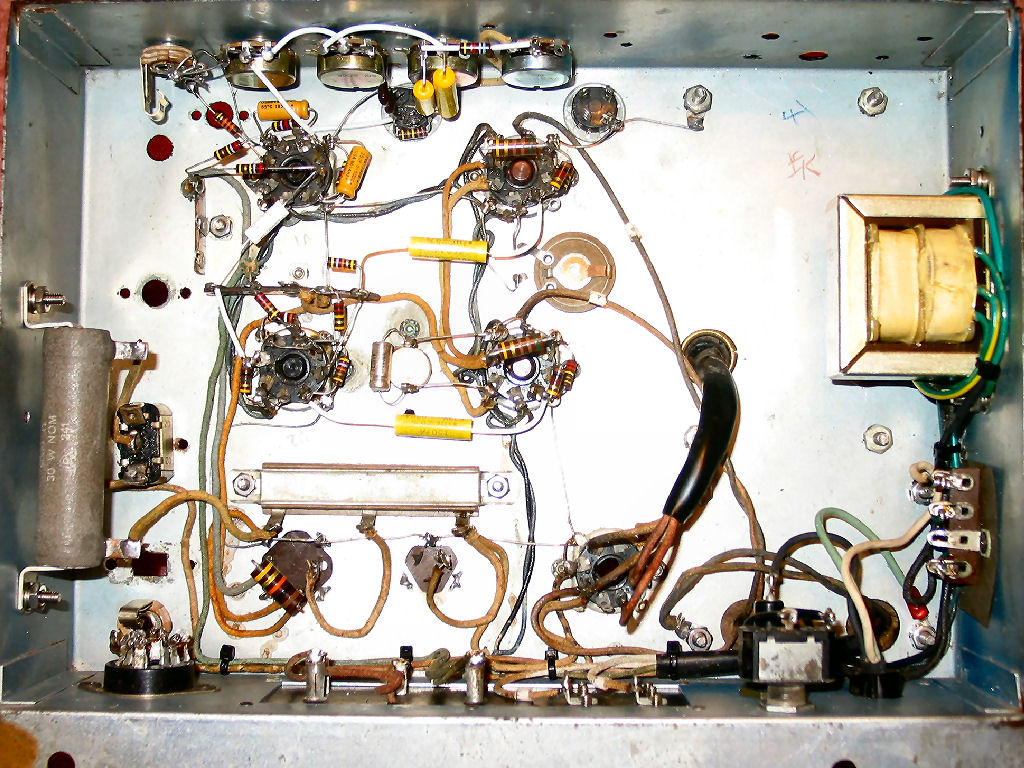Field Coils
Moderators: pompeiisneaks, Colossal
-
bradicusmaximus
- Posts: 83
- Joined: Sun Feb 16, 2014 9:49 pm
- Location: Western New York
Field Coils
This isn't a specific issue that's currently on the bench, but more a general question to try and get a best-case reference or method since there seems to be a lot of varying information I've come across.
What is the best way to eliminate a field coil speaker from an antique amp? From time to time I've had some come around that had bum speakers or whatever and it wasn't worth it to have the speaker rebuilt or things like that. I would love to have a go-to process to implement to breathe some life into otherwise decent amps.
Thanks!
Brad
What is the best way to eliminate a field coil speaker from an antique amp? From time to time I've had some come around that had bum speakers or whatever and it wasn't worth it to have the speaker rebuilt or things like that. I would love to have a go-to process to implement to breathe some life into otherwise decent amps.
Thanks!
Brad
Re: Field Coils
Replace it with a resistor of equal resistance value and power rating sufficient to handle the heat dissipation.
-
bradicusmaximus
- Posts: 83
- Joined: Sun Feb 16, 2014 9:49 pm
- Location: Western New York
-
sluckey
- Posts: 3432
- Joined: Sun Jul 22, 2007 7:48 pm
- Location: Mobile, AL
- Contact:
1 others liked this
Re: Field Coils
I used to deal with this regularly in the late '60s when I was restoring old console radios. The last one I did was in 2009 when I converted a RockOla amp to a guitar amp. Had to use a 5K/30W resistor. It's the big brown wire wound resistor on the left side of the chassis...


Re: Field Coils
I would be tempted to try an inductor (choke) that had similar spec’s to the field coil.
-
bradicusmaximus
- Posts: 83
- Joined: Sun Feb 16, 2014 9:49 pm
- Location: Western New York
Re: Field Coils
That almost seemed like the more "proper" course just because the coil isn't a direct resistive load. As my un-schooled mind works, it seems like it would be similar to the role of a choke vs. a resistor - while both work, one is better. I should probably just stop being timid, try out both methods, and let the sparks fly! lol
-
bradicusmaximus
- Posts: 83
- Joined: Sun Feb 16, 2014 9:49 pm
- Location: Western New York
Re: Field Coils
sluckey wrote: ↑Tue Jan 22, 2019 11:52 pm I used to deal with this regularly in the late '60s when I was restoring old console radios. The last one I did was in 2009 when I converted a RockOla amp to a guitar amp. Had to use a 5K/30W resistor. It's the big brown wire wound resistor on the left side of the chassis...
That's very cool. How did it sound?
- Tony Bones
- Posts: 228
- Joined: Thu Oct 30, 2014 8:24 pm
Re: Field Coils
Yeah that makes sense, except that the field coils often had a much higher DC resistance than a typically available choke. You (usually) need to drop quite a few volts. Maybe a choke with an added resistor would be practical.
Re: Field Coils
Seems like I recall seeing a schematic that used the field coil’s inductor as the “choke” input rectifier, which would drop a lot of voltage.
Re: Field Coils
Lot's of ways to connect a field coil. Early Hammond AO-29 even put a 700Ω field coil between the HT center tap and ground to provide a negative voltage source for bias. But a 5KΩ field coil will typically be connected between B+ and ground. You would not want to use a choke in this case. The amp in the pic I posted had the field coil connected between node B and ground. Here's the schematic. Look at page 3 and/or 4 to see it easily without having to trace through a bunch of plugs...
http://sluckeyamps.com/rocky/rocky.pdf
http://sluckeyamps.com/rocky/rocky.pdf